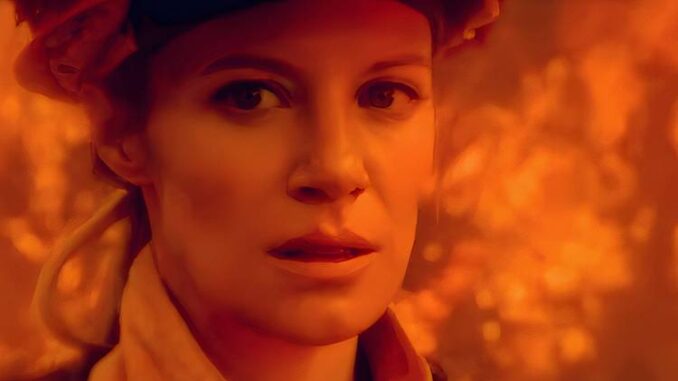
The Quiet Inferno: Why Station 19 Is the Most Underrated LGBTQ Drama on TV
In the bustling landscape of contemporary television, where LGBTQ+ narratives have thankfully moved from the periphery to increasingly central roles, certain shows still fly under the radar. While critical darlings like "Pose," "Heartstopper," and "It's a Sin" rightly receive accolades for their groundbreaking portrayals, a quiet inferno of authentic queer storytelling has been burning steadily on network television for years, largely overlooked: ABC's "Station 19." More than just a "Grey's Anatomy" spin-off, this firehouse drama has painstakingly crafted some of the most nuanced, integrated, and genuinely progressive LGBTQ+ storylines on air, making a compelling case for its title as the most underrated LGBTQ drama on TV.
The very nature of "Station 19" as a network procedural often places it at a disadvantage in the prestige TV conversation. Spinoffs are frequently viewed through a lens of lesser ambition, and the broadcast model, with its commercial breaks and broader audience considerations, can be perceived as less daring than its streaming or cable counterparts. Yet, within these perceived constraints, "Station 19" has woven a tapestry of queer lives that is both refreshingly ordinary and deeply profound. Its strength lies not in sensationalizing LGBTQ+ experiences, but in normalizing them, portraying queer individuals as complex human beings whose identities are integral to their being, yet not their sole defining characteristic.
At the beating heart of "Station 19"'s queer narrative is the relationship between Maya Bishop (Danielle Savre), a fiercely ambitious and often troubled firefighter captain, and Carina DeLuca (Stefania Spampinato), a warm, empathetic OB/GYN. Their journey, affectionately dubbed "Marina" by fans, is a masterclass in healthy, evolving queer love. Unlike many LGBTQ+ pairings that either face constant external homophobia or exist in a bubble, Maya and Carina’s challenges are largely internal and universally human: navigating past trauma, communication breakdowns, career pressures, and the arduous path to parenthood. We witness Maya’s struggle with her abusive Olympic coach father, her vulnerability in therapy, and her journey towards emotional intelligence, all facilitated by Carina’s unwavering love and fierce advocacy. Carina, an Italian immigrant, provides a perspective on chosen family and the subtle complexities of navigating a new culture while maintaining her identity. Their marriage, their joint pursuit of IVF, and their ongoing commitment to working through their individual and shared baggage offer a powerful, aspirational vision of a queer relationship that is both deeply romantic and painstakingly real.
Beyond Marina, the show offers another vital pillar of queer representation in Travis Montgomery (Jay Hayden), a gay firefighter still grappling with the tragic death of his husband. Travis's storyline is a poignant exploration of grief, the challenges of dating again, and the complexities of finding love after loss. His journey isn't just about finding another partner; it's about reclaiming his identity, confronting internalized pain, and eventually stepping into a leadership role as a political candidate. The show portrays his relationships with other men – from the charming but troubled Emmett Dixon to the earnest Eli Sterling – with a grounded realism that often bypasses the typical tropes of gay male relationships on screen. These men are not defined by their sexuality alone, but by their careers, friendships, and personal aspirations.
What truly elevates "Station 19" is its commitment to integrated storytelling. LGBTQ+ characters aren't token additions or relegated to standalone "special episodes." Their lives, loves, and struggles are organically woven into the fabric of the show, impacting the broader narratives and themes. The firehouse itself becomes a chosen family, a microcosm of society where diverse identities are celebrated and supported. The allies – Andy Herrera, Vic Hughes, Ben Warren, Dean Miller – demonstrate genuine, proactive allyship, not just tolerance. They show up for their queer friends, offer advice, share burdens, and participate in their joys, creating an environment where queer characters can thrive without constantly battling external prejudice. This portrayal of widespread acceptance within the core group is, in itself, a radical act of normalization on network television.
Furthermore, "Station 19" tackles difficult subjects head-on, albeit often through the lens of its characters' personal experiences rather than as overt issue-of-the-week plots. It addresses the emotional toll of professional stress on relationships, mental health struggles, and the nuanced dynamics of family acceptance or rejection. While it might not have the explicit educational focus of some LGBTQ+ dramas, its strength lies in its ability to quietly educate through empathy and connection. Viewers witness the resilience of queer love in the face of adversity, the courage it takes to heal from trauma, and the profound beauty of building a life with unwavering support.
In an era where many shows are praised for their bold, often explicit, explorations of queer identity, "Station 19" offers a different, equally vital contribution: a consistent, deeply human, and unpretentious portrayal of LGBTQ+ lives thriving within the everyday. It’s a drama that shows queer people getting married, raising families, grieving, laughing, making mistakes, and saving lives – just like everyone else. For its quiet bravery, its consistent character development, and its unwavering commitment to normalizing queer experiences on a massive platform, "Station 19" is not just a good LGBTQ+ drama; it is, unequivocally, the most underrated. It deserves not just critical reappraisal, but a wider appreciation for the vital, ground-level work it has been doing to reflect the full spectrum of the human experience.